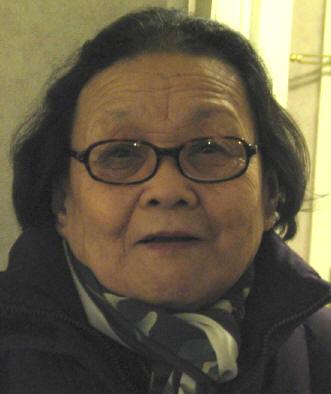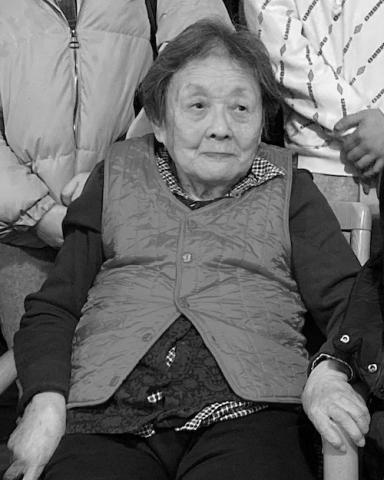In memory of Gao Yaojie, China’s AIDS whistleblower

Last December a couple of weeks before Christmas, Gao Yaojie, who helped expose China’s AIDS scandal in the 1990s, died in her New York home aged 95.
Gao, known affectionately as Grandma Gao, was already in her sixties and a retired gynecologist when she was alerted to the alarmingly high rates of HIV infections in the Chinese countryside. She revealed how blood banks were infecting donors in poor rural areas with HIV due to their unethical and unhygienic practices such as using dirty needles and pooling donated blood. At least tens of thousands of donors went on to die from AIDS.
For years, Gao spoke out about this scandal despite official efforts to conceal the epidemic. She eventually left China to live in the US in 2009 because of constant government surveillance. She continued to write books and speak out for health and human rights from her home in New York despite battling her own health issues. She is also known for championing the cause of AIDS orphans, children whose parents died of AIDS because of the scandal.
Earlier this year, independent online magazine Mang Mang published a conversation between two friends of Gao: Lin Shiyu, who wrote a book about her life “The Oral History of Gao Yaojie” and Vivian Wu, former BBC journalist and founder of Mighty Voice Media who was making a documentary about Gao when she died.
In that documentary Gao tells Wu: “It’s too bad these people [farmers who were infected with HIV] had to die in such a miserable way. It’s unfair. I had to speak for them.”
In memory of Gao, Safeguard Defenders has translated part of that conversation between Lin and Wu and is publishing it here. You can read the original full conversation in Chinese here.

Lin:
Grandma Gao rescued 164 children [AIDS orphans]. She helped place some of these in her hometown [in Shandong Province]. Whenever I saw her, there were two things she would always talk about and one of them were the AIDS orphans and how they were doing back in China. Some of those kids got married and had their own children. She was so happy when they sent her photos – that was the happiest [I ever saw her]. She was also very interested in how China was developing. When I went back to China, I would hear people question why she left when she was so revered. They thought she was a traitor, unpatriotic or anti-China. I would say, she’s more patriotic than any of you lot. Her eyes would fill with tears whenever we started discussing the kinds of things that were going on in China, like anti-corruption, how difficult life was for ordinary people, COVID lockdowns, what was going on in Shanghai…
Wu:
She could see with her own eyes that China had taken a dramatic turn for the worse and it was getting even worse… She would say that it was lucky she was in the US, that Americans had saved her many times, otherwise she would have died several times over, she would have died from a blood clot [after arriving in New York she discovered a blood clot in her leg]. Sixteen years ago, she was left bedridden when she caught pneumonia. She would point to the ventilator and say: "Look, this is all from the US. Without this ventilator I would have died a long time ago.” …
But she would go on her computer every day – she liked sites like BBC Chinese, VOA, Sina and Sohu. She would also keep in touch with her friends back in China by email. She would often ask us to organize her emails. [Some of them] would mention that the situation in China was getting bad again, like the things that were happening in Shanghai. She was well up on news about [COVID] in the last few years, and probably knew sooner than us about what was going on in China than any of us on the ground, because she sat in front of her computer every day and read about it.
There were times when she would say she was tired of living; she didn’t want to live anymore. I was just thinking about this, what it takes to be the age of 96 and still be writing books. But then she would keep saying that she didn’t want to live anymore, she was ready to die. But she also had a sense of urgency, like she was a in real hurry. Her writing tablet broke and so she sent me a series of emails telling me. She was devastated, because she couldn’t do anything. So on Lunar New Year’s Eve last year I bought her a writing tablet and that same day she was using it, she couldn’t wait to start writing out her thoughts on it. Later, when I thought about it, I realized writing may be her only reason for living…
Lin:
I just remembered there was one time that she wanted to go back to China but her passport had expired. She asked me if I could help her renew it. I said I could… I brought my camera and took her photo, we filled out the form, and then at the very last moment, she hesitated… but she had told me that in these past few years some people had come to see her and asked her to go back home, they said they’d look after her. I’ve never been able to figure out who those people were, whether they were officials or just civilians.
She said she wanted her ashes to be taken to China. She was always insisting on this. We all knew that she had written in her will that she wanted her son to take her ashes back and to scatter them in the Yellow River. Every time she saw me, she would mention this. She was always worrying about it. I told her not to worry, and that if her son was unable to come, I would take her ashes back to China for her. I don’t know what happened to her ashes. I hope that it happened as she wanted.
I think the thing that really moved me in all the years I knew Grandma Gao was that we should not underestimate the power of the individual. Think about, it, in 1996 she was 69 years old, she’d already retired, she never thought she would be saving so many people and get herself into so much trouble by doing it. But it would be against her conscience not to do it. So she did it. She was a very simple person. In a previous interview, she said: “I'm not a hero, I'm just a normal person. I'm a human being in the original sense of the word. I can’t just look away when I see other people’s suffering.”
I believe we should not underestimate the power of the individual… That was the most beautiful thing she ever gave me. A couple of days ago I put a photo I have of us up on my wall .. it’s my favourite one.. my arm is around her and she is smiling so sweetly in my arms.
For the first month after she passed away, I was terribly sad. I was alone at home… Every night I would think about her, and watch all the videos taken of us together and just cry, I was a mess. Recently, I’ve gotten my strength back. Every day I see her, smiling and I imagine that she is a star in the heavens, looking down at each of us.
Wu:
From how she lived her life, you can tell that Gao Yaojie was led by her values, her professional choices, what she thought it was to be a human being. While such choices might be made without too much deliberation, she wanted to write books and so later she paid that price…
Gao Yaojie told the truth throughout her life…. I think that after we look back at her almost hundred years of life, and understand everything she went through, the choices she made at every critical stage, these are the things that will fill us with strength, a strength that comes from our own determination.